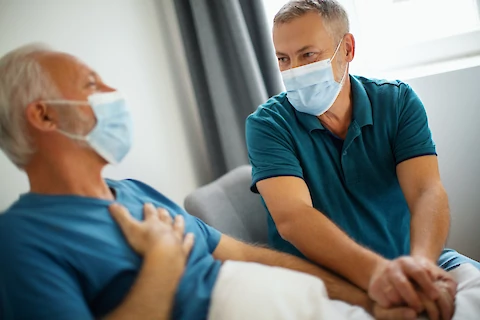
What to Do If You Take Care of Senior Adults and Have a Cold
As we age, our immune system may be compromised. The ability to fight off infections reduces, and we may be at higher risk of contracting a cold. Recovering from a cold may also take a little longer. For older adults, having a cold can be risky and requires utmost care to help them heal faster. As such, caregivers who have a cold should be cautious when handling their elderly loved ones. If you have a cold and are the one taking care of a senior loved one, you need to practice hygiene measures to avoid spreading the virus. Here's what to do if you take care of senior adults and have a cold.
Avoid Close Contact
The virus that causes a cold is highly contagious. As such, caregivers should avoid close contact with their elderly loved ones whenever possible until the cold subsides.
Maintain High Levels of Hygiene
Caregivers should maintain high levels of hygiene to avoid spreading the virus that causes a cold. They should regularly clean their hands to avoid spreading the germs. This is more important after blowing the nose as the virus is highly contagious. Additionally, caregivers should cover their mouths with disposable tissue when sneezing.
Ensure That the Room Is Properly Ventilated
A properly ventilated room helps reduce the transmission of the virus. In a ventilated room, the virus' concentration will be lower, and this will reduce the chances of infecting others.
Disinfect the Environment
To prevent the virus from spreading, caregivers should consider disinfecting handles of commonly used household appliances such as fridge doors, switches, and sockets. Door knobs and window handles should also be disinfected, as seniors may regularly touch them as they open or close doors and windows. Caregivers should also sanitize shared mobile devices to minimize the risk of spreading the virus.
Stay Hydrated
Drinking enough fluids helps boost the immune system, which in turn helps ease the symptoms of a cold so you can recover faster. Caregivers who have a cold need to increase their fluid intake to help keep them hydrated, so they can heal faster.
Get Prescription Medication
Although the cold virus doesn't have a cure, there are prescription medications that can help ease the symptoms. Caregivers should consider consulting a doctor who will prescribe the most suitable medication to relieve the symptoms of a cold.
Wear a Face Mask
A face mask helps reduce the chances of spreading the cold virus. Caregivers can wear masks to reduce the chances of infecting their loved ones. Seniors may also wear masks to protect themselves and reduce the chances of contracting the virus.
Hire a Caregiver
To take care of senior adults, adult children may want to avoid close contact with seniors. But what happens if the seniors are dependent on their adult children? Hiring an in-home caregiver to assist with caregiving duties may become necessary to help protect seniors from contracting the cold virus. This allows adult children to rest and nurse the cold and is also a great way to avoid spreading the virus.
Get High-Quality Senior Care Services at the Senior Helpers Beaverton
Hiring a caregiver from Senior Helpers Beaverton ensures that seniors living in Beaverton, King City, Hillsboro, Wilsonville, Tualatin, and Canby are taken care of even when their adult children are unwell or away. Our in-home caregivers are trained to take care of older adults- from helping with daily activities to reminding them about taking medication and also providing companion care to liven up their days. Contact us today for more information.